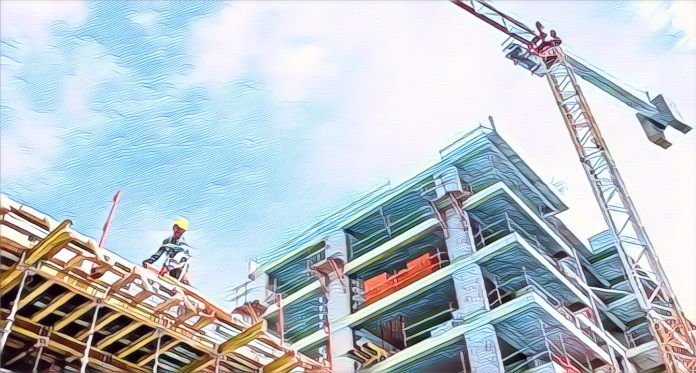In an environment already strained by economic difficulties, Nigeria’s building and construction industry is experiencing one of its most challenging periods, with construction costs soaring by 200% over the last two years. This spike is attributed to a combination of factors, including a steep exchange rate, rising prices of building materials, and increased labor costs, all compounded by an inflation rate that hit 28.9% in December 2023.
The recent removal of petrol subsidies and the devaluation of the naira have significantly impacted consumer prices, exacerbating the financial strain on the building sector. Import-dependent materials such as windows, doors, ceramics, tiles, plumbing appliances, and sanitary wares, which constitute 23% of the market, have seen the most direct effects of the exchange rate crisis. Even locally sourced materials, which make up 37% of the market, are not immune, as production and transportation costs have escalated.
Material costs, which account for about 60% of overall building expenses, continue to rise, driven by the depreciating value of the naira. Essential items like cement, blocks, doors, reinforcement rods, and paints have witnessed price hikes of over 75% in the past 12 months. This inflationary trend raises concerns among professionals in the built environment about the impact on housing supply, affordability, and accessibility, particularly for low and middle-income earners.
A recent survey by The Guardian on building materials illustrated the stark price increases: a 50-kilogram bag of cement that sold for N4,700 in January of the previous year now ranges between N6,200 and N6,500. Similarly, the costs of iron rods and cement-based blocks have surged, significantly affecting construction budgets and project timelines.
Labor costs have also seen a dramatic rise, with daily charges for artisans doubling in some areas. This hike is partly due to increased transportation costs to construction sites. Consequently, the escalation in material and labor costs has made affordable housing a distant dream for over 75% of Nigerians who lack access to suitable accommodation, with a ripple effect seen in the escalating prices of newly constructed buildings and rental prices across income settlements.
Experts stress that without targeted government intervention through policies aimed at reducing construction costs, the situation is likely to worsen. Suggestions include offering a special exchange rate for imported materials, tax relief for construction companies, encouraging the use of local materials, and establishing financial intermediation to lower overall expenditures.
As Nigeria grapples with these economic challenges, the call for good governance becomes ever more critical. Kaduna State Governor Uba Sani’s recent statements emphasize the need for a holistic approach to address both the symptoms and root causes of the country’s insecurity and economic instability, proposing good governance as the cornerstone of sustainable solutions.



